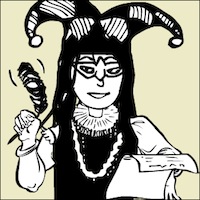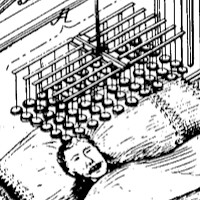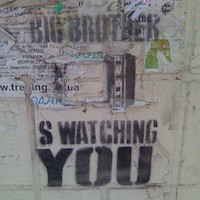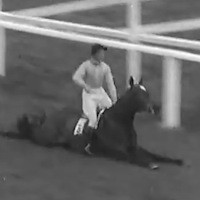The Christmas Truce of World War I

As the year 1914 drew to a close, the soldiers fighting in World War I were far from home and much too close to hell. The war had been raging since August, and governments on both sides had promoted the view that it would be over by Christmas. Almost five months later, neither side able to wrest territory from the other. Infantry battalions were stuck in muddy trenches across a steadily freezing Europe. This is why the Christmas truce, which began on December 24, has fascinated us for more than a hundred years.
By that time, the supposed enemies had lived at such close quarters for so long that they sometimes hobnobbed with each other, even though this was strictly prohibited. Similarly, informal, unauthorized ceasefires had often occurred before. Negotiated by the soldiers as needed, such truces allowed them to retrieve the rotting bodies of fallen comrades from no man’s land for burial. Indeed, according to Sebastian Borger of Berliner Zeitung, this was the initial purpose of the Christmas truce – nothing more than “a gesture of respect for each other’s dead.” It then became an informal celebration, occurring in dozens of places near Ypres in Belgium, where British troops faced German forces.
These were men who knew they would be spending Christmas in the trenches, huddled together under a wintry sky. Then the festive season began, and soldiers on both sides started receiving Christmas packages: plum puddings and chocolate cakes, tobacco and alcohol, pictures and letters from home. These really boosted morale. Finally, December 24 brought clear skies and frost, a much-needed respite from weeks of rain and slippery mud. The stage was set for a merry Christmas after all.
Letters
Much of what we know about the truce comes from letters written by the participating soldiers the next day, still marveling at the event. Excerpts from many of these were published in the Daily Mail for the centennial commemoration. Sergeant A. Lovell described what he saw that night: “Climbing the parapet, I saw a sight which I shall remember to my dying day. Right along the whole of their line were hung paper lanterns and illuminations of every description, many of them in such positions as to suggest that they were hung upon Christmas trees.” He was indeed looking at miniature Christmas trees, which the German soldiers had received from Kaiser Wilhelm II.
Rifleman Graham Williams described what happened next: “First the Germans would sing one of their carols and then we would sing one of ours, until when we started up O Come, All Ye Faithful, the Germans immediately joined in singing the same hymn to the Latin words Adeste Fideles. And I thought, well, this is a most extraordinary thing – two nations singing the same carol in the middle of a war.”
On the other side of no man’s land, Josef Wenzl watched what he had initially thought was madness: “One Englishman, who was joined soon by another, came towards us until he was more than halfway towards our trenches – by which point some of our people had already approached them. And so Bavarians and English, until then the greatest of enemies, shook hands, talked and exchanged items.” Taking a turn for the poetic, he wrote: “A single star stood still in the sky directly above them, and was interpreted by many as a special sign.”
Perhaps the most interesting letter was the one written by Captain Robert Patrick Miles. It’s poignant, as he would be killed in action a few days later, but it captures the bemusement that comes across in many contemporary accounts. An excerpt was published in the Spokesman-Review on February 22 the following year.
“The funny thing is,” wrote Miles, “it only seems to exist in this part of the battle line – on our right and left we can all hear them firing away as cheerfully as ever. The thing started last night – a bitter cold night, with white frost – soon after dusk when the Germans started shouting ‘Merry Christmas, Englishmen’ to us. Of course our fellows shouted back and presently large numbers of both sides had left their trenches, unarmed, and met in the debatable, shot-riddled, no man’s land between the lines. Here the agreement – all on their own – came to be made that we should not fire at each other until after midnight tonight. The men were all fraternizing in the middle (we naturally did not allow them too close to our line) and swapped cigarettes and lies in the utmost good fellowship.”
Romanticized
The next day, Miles lamented the fact that the Germans were still making merry and wouldn’t get off their parapets: “We can’t shoot them in cold blood … I cannot see how we can get them to return to business.”
The “return to business” is one reason some people believe the truce has been excessively romanticized. It didn’t happen on the Eastern Front, after all, since Russia was still on the Julian calendar and observed Christmas only in January. Neither did it really happen all along the Western Front, maybe because French and Belgian soldiers didn’t want to celebrate with Germans who had invaded their countries.
However, writing in the BBC magazine on the centenary of the truce, Christian Carion describes how he found evidence in French military archives of opposing soldiers fraternizing that night. Unlike the British press, the French media didn’t publicize military reports of such banned activities. Carion quotes Louis Barthas, a French corporal who wrote: “Shared suffering brings hearts together, dissolves hatred and prompts sympathy among indifferent people and even enemies. Those who deny this understand nothing of human psychology. French and German soldiers looked at one another and saw that they were all equal as men.” Carion went on to write and direct the 2005 film Joyeux Nöel, which was based on his research.
Skeptics also question the legend of the football or soccer match, but, according to Smithsonian Magazine, the German 133rd Royal Saxon Regiment corroborates all British reports. There was a match on Christmas Day, and the Germans won 3-2.
Captain John Lew also confirmed the playing of a soccer game at his regiment’s Christmas truce. In a short letter published recently in the Daily Express, complete with its original misspellings, he wrote: “I was personaly involved in something that can only be refered to as nothing other than extraordinary. There was a truce between us and the germans, we buried dead comrades and exchanged gifts and even played a game of friendly football.” He went on to hope that the war would end shortly.
It didn’t, and even though there was even a second Christmas truce in 1915, it was the last one. As the soldiers could not know then, fighting only became bloodier and more desperate after the first truce, causing increasing psychological damage to the soldiers in the trenches. The war finally ended more than four years after it had begun.
By that time, the supposed enemies had lived at such close quarters for so long that they sometimes hobnobbed with each other, even though this was strictly prohibited. Similarly, informal, unauthorized ceasefires had often occurred before. Negotiated by the soldiers as needed, such truces allowed them to retrieve the rotting bodies of fallen comrades from no man’s land for burial. Indeed, according to Sebastian Borger of Berliner Zeitung, this was the initial purpose of the Christmas truce – nothing more than “a gesture of respect for each other’s dead.” It then became an informal celebration, occurring in dozens of places near Ypres in Belgium, where British troops faced German forces.
These were men who knew they would be spending Christmas in the trenches, huddled together under a wintry sky. Then the festive season began, and soldiers on both sides started receiving Christmas packages: plum puddings and chocolate cakes, tobacco and alcohol, pictures and letters from home. These really boosted morale. Finally, December 24 brought clear skies and frost, a much-needed respite from weeks of rain and slippery mud. The stage was set for a merry Christmas after all.
Letters
Much of what we know about the truce comes from letters written by the participating soldiers the next day, still marveling at the event. Excerpts from many of these were published in the Daily Mail for the centennial commemoration. Sergeant A. Lovell described what he saw that night: “Climbing the parapet, I saw a sight which I shall remember to my dying day. Right along the whole of their line were hung paper lanterns and illuminations of every description, many of them in such positions as to suggest that they were hung upon Christmas trees.” He was indeed looking at miniature Christmas trees, which the German soldiers had received from Kaiser Wilhelm II.
Rifleman Graham Williams described what happened next: “First the Germans would sing one of their carols and then we would sing one of ours, until when we started up O Come, All Ye Faithful, the Germans immediately joined in singing the same hymn to the Latin words Adeste Fideles. And I thought, well, this is a most extraordinary thing – two nations singing the same carol in the middle of a war.”
On the other side of no man’s land, Josef Wenzl watched what he had initially thought was madness: “One Englishman, who was joined soon by another, came towards us until he was more than halfway towards our trenches – by which point some of our people had already approached them. And so Bavarians and English, until then the greatest of enemies, shook hands, talked and exchanged items.” Taking a turn for the poetic, he wrote: “A single star stood still in the sky directly above them, and was interpreted by many as a special sign.”
Perhaps the most interesting letter was the one written by Captain Robert Patrick Miles. It’s poignant, as he would be killed in action a few days later, but it captures the bemusement that comes across in many contemporary accounts. An excerpt was published in the Spokesman-Review on February 22 the following year.
“The funny thing is,” wrote Miles, “it only seems to exist in this part of the battle line – on our right and left we can all hear them firing away as cheerfully as ever. The thing started last night – a bitter cold night, with white frost – soon after dusk when the Germans started shouting ‘Merry Christmas, Englishmen’ to us. Of course our fellows shouted back and presently large numbers of both sides had left their trenches, unarmed, and met in the debatable, shot-riddled, no man’s land between the lines. Here the agreement – all on their own – came to be made that we should not fire at each other until after midnight tonight. The men were all fraternizing in the middle (we naturally did not allow them too close to our line) and swapped cigarettes and lies in the utmost good fellowship.”
Romanticized
The next day, Miles lamented the fact that the Germans were still making merry and wouldn’t get off their parapets: “We can’t shoot them in cold blood … I cannot see how we can get them to return to business.”
The “return to business” is one reason some people believe the truce has been excessively romanticized. It didn’t happen on the Eastern Front, after all, since Russia was still on the Julian calendar and observed Christmas only in January. Neither did it really happen all along the Western Front, maybe because French and Belgian soldiers didn’t want to celebrate with Germans who had invaded their countries.
However, writing in the BBC magazine on the centenary of the truce, Christian Carion describes how he found evidence in French military archives of opposing soldiers fraternizing that night. Unlike the British press, the French media didn’t publicize military reports of such banned activities. Carion quotes Louis Barthas, a French corporal who wrote: “Shared suffering brings hearts together, dissolves hatred and prompts sympathy among indifferent people and even enemies. Those who deny this understand nothing of human psychology. French and German soldiers looked at one another and saw that they were all equal as men.” Carion went on to write and direct the 2005 film Joyeux Nöel, which was based on his research.
Skeptics also question the legend of the football or soccer match, but, according to Smithsonian Magazine, the German 133rd Royal Saxon Regiment corroborates all British reports. There was a match on Christmas Day, and the Germans won 3-2.
Captain John Lew also confirmed the playing of a soccer game at his regiment’s Christmas truce. In a short letter published recently in the Daily Express, complete with its original misspellings, he wrote: “I was personaly involved in something that can only be refered to as nothing other than extraordinary. There was a truce between us and the germans, we buried dead comrades and exchanged gifts and even played a game of friendly football.” He went on to hope that the war would end shortly.
It didn’t, and even though there was even a second Christmas truce in 1915, it was the last one. As the soldiers could not know then, fighting only became bloodier and more desperate after the first truce, causing increasing psychological damage to the soldiers in the trenches. The war finally ended more than four years after it had begun.
You Should Also Read:
Christmas in the skies
Christmas in Germany
A Declaration of War (July 28, 1914)

Related Articles
Editor's Picks Articles
Top Ten Articles
Previous Features
Site Map
Content copyright © 2023 by Lane Graciano. All rights reserved.
This content was written by Lane Graciano. If you wish to use this content in any manner, you need written permission. Contact Lane Graciano for details.







